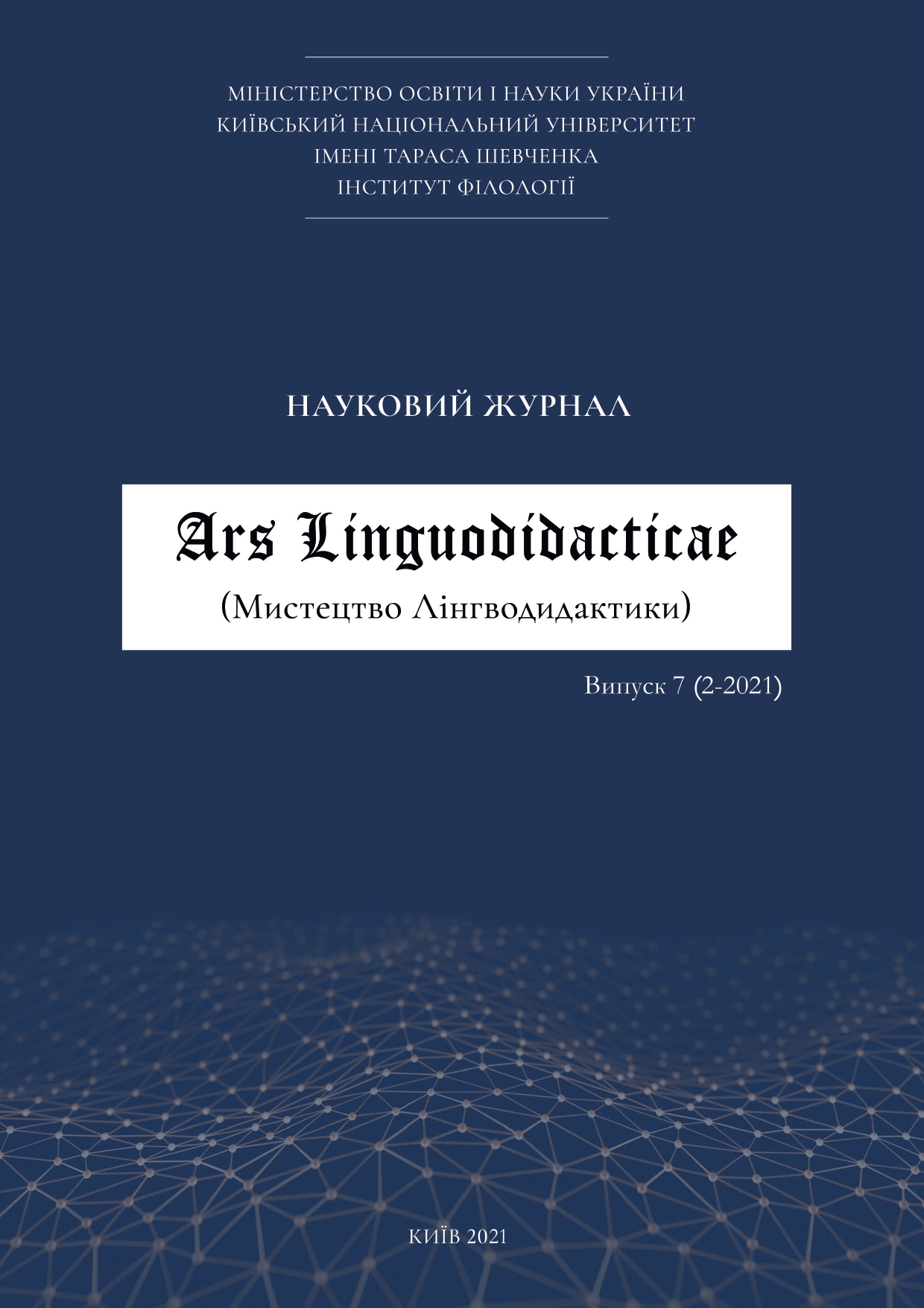AESTHETIC EDUCATION OF SENIOR SCHOOL STUDENTS THROUGH ENGLISH EXTRACURRICULAR ACTIVITIES
DOI:
https://doi.org/10.17721/2663-0303.2021.7.05Abstract
Abstract
The article deals with the problem of aesthetic education of senior school students, which provides the development of creatively active personality, who can fully perceive the beautiful, harmonious and perfect in the environment. Therefore, modern school channels its efforts to ensure the aesthetic education of the pupils, creating pedagogical conditions that enhance aesthetic education of the learners. Since ancient times, aesthetic education has occupied a prominent place in the process of shaping personal and cultural identity. The ability to feel, perceive, understand, realize, and create beautiful things are specific manifestations of spiritual and cultural maturity of a person whose aesthetic perception and sense is shaped and developed throughout the life. One of the ways to enhance the development of aesthetic values and perception is through engaging learners in extracurricular activities. The latter enable students to expand cultural horizons and world view as well as enhance creative thinking. Extracurricular work deepens sociocultural knowledge as well as adds to the FL communication skills of the learners. Pupils who have failed, for various reasons, to realize their creative potential in the classroom, can do when engaged in extracurricular work due to the atmosphere of trust, mutual understanding, cooperation and mutual created. The authors offer a practical guide to an extracurricular activity in English for senior schoolers. The purpose of this activity is to improve pupils’ communication skills, enhance aesthetic sensitivity and motivation for learning a foreign language.
Keywords: aesthetic education, aesthetic sense, extracurricular work, upbringing, senior school pupils.
Downloads
Published
How to Cite
Issue
Section
License

This work is licensed under a Creative Commons Attribution-ShareAlike 4.0 International License.
This work is licensed under a Creative Commons Attribution-NonCommercial 4.0 International License.
Copyright policy according to the terms of the license: Creative Commons "Attribution-NonCommercial" 4.0 International (CC BY-NC 4.0).
Authors who publish their articles in "Ars Linguodidacticae" (Open Access Journal) retain the following rights:
- The authors retain the copyright of their article and grant the Ars Linguodidacticae journal the right to first publish the manuscript of their article under the Creative Commons (CC BY-NC 4.0) Attribution License, which allows others to freely distribute the published work with mandatory reference to the author of the original work and first original publication in the Ars Linguodidacticae journal. An indication of the retention of the copyright of the work is provided on the title page of the article.
- The authors reserve the right to enter into separate contracts for the non-exclusive distribution of their article as published in Ars Linguodidacticae (e.g., placing the article in electronic libraries, archives and catalogs or publishing it as part of institute collections and monographs), provided that a full reference to the first original publication in Ars Linguodidacticae is given.
- The policy of the "Ars Linguodidacticae" journal allows and encourages authors to post a manuscript both before and during editorial processing, as this promotes productive scientific discussion and has a positive effect on the speed and dynamics of citing the article.
The editorial board reserves publishing rights to:
- the collated original articles and to the entire issue of the journal.
- the design of the journal and original illustrative and supplementary materials.
- the reprint reprints of the Journal in printed and electronic form.
The copyright policy is carried out according to the terms of the license: Creative Commons "Attribution-NonCommercial" 4.0 International (CC BY-NC 4.0).
For more information, please read the full text of the CC BY-NC 4.0 Public License.
Creative Commons Attribution-NonCommercial 4.0 International License.


